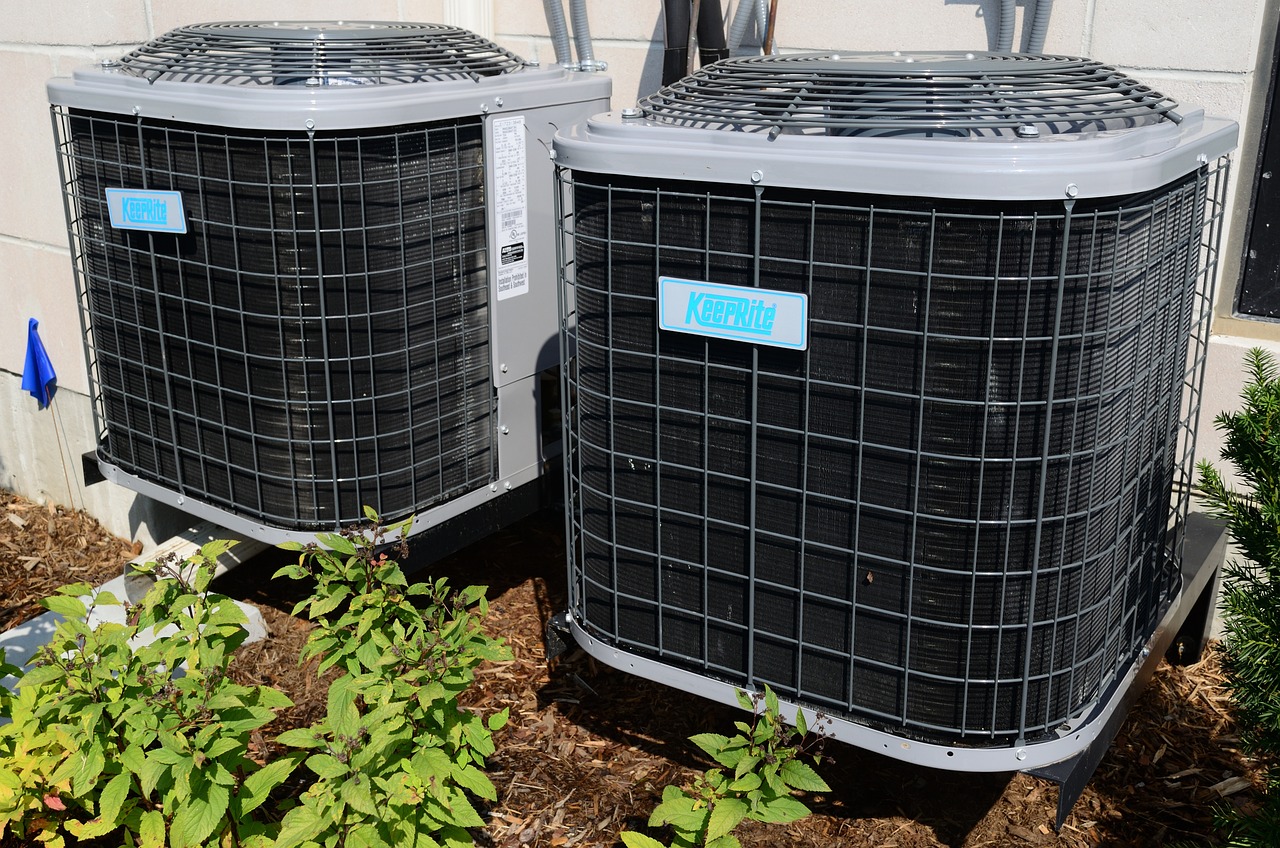acf domain was triggered too early. This is usually an indicator for some code in the plugin or theme running too early. Translations should be loaded at the init action or later. Please see Debugging in WordPress for more information. (This message was added in version 6.7.0.) in /www/wwwroot/leadcont.com/blog/wp-includes/functions.php on line 613117950 NW 53rd Street Suite 337
Miami, Florida 33166

An HVAC system (Heating, Ventilation, and Air Conditioning) plays a crucial role in regulating the indoor environment, ensuring comfort, energy efficiency, and healthy air quality in both homes and businesses. Whether you’re trying to stay warm in the dead of winter or cool during the hottest days of summer, an HVAC system is essential for creating a comfortable, safe space. In the United States, where seasonal temperature variations can range from harsh winters to extreme heat waves, HVAC systems are indispensable for maintaining optimal living and working conditions.
In fact, HVAC systems are not only a matter of comfort—they also represent a significant economic factor. According to the U.S. Department of Energy, heating and cooling account for nearly 40% of the total energy consumption in American homes. With over 130 million homes in the U.S. using HVAC systems, the impact on energy use and costs is substantial. This makes choosing the right HVAC system, maintaining it, and upgrading to more energy-efficient models critical not only for financial savings but also for reducing the nation’s overall energy consumption.
In this blog, we will explore the key benefits of HVAC systems, how they contribute to energy savings, improve health, and why investing in an efficient system is more important than ever.
An HVAC system is more than just an appliance; it’s a comprehensive solution that regulates air temperature, humidity, and air quality in indoor spaces. In the U.S., where people face varied climates—from freezing winters in the north to sweltering summers in the south—HVAC systems are a necessity. They help control indoor temperatures, making it possible to live comfortably in any weather. They also help filter out airborne allergens, dust, and pollutants, which can be crucial for health, especially in areas with high pollen counts or pollution.
As the world becomes more conscious of energy efficiency and environmental concerns, modern HVAC systems are increasingly being designed to minimize energy consumption. Energy-efficient models are helping U.S. homeowners and businesses lower their utility bills and reduce their carbon footprint. According to the U.S. Environmental Protection Agency (EPA), Energy Star-certified HVAC systems use up to 30% less energy than non-certified systems, making them a smart choice for anyone looking to save money and reduce their impact on the environment.
HVAC systems have a direct impact on your energy bills. As mentioned earlier, heating and cooling account for 40% of energy usage in a typical American household, making it one of the largest contributors to energy expenses. However, by installing a high-efficiency HVAC system, you can significantly reduce these costs.
Here’s the financial benefit: According to the U.S. Department of Energy, replacing an old, inefficient HVAC system with a newer, Energy Star-certified model can save homeowners an average of $115–$200 per year on energy bills. For businesses, especially those operating in large commercial buildings or office spaces, the savings can be even higher. In fact, commercial buildings in the U.S. account for 18% of the total energy consumption, which makes energy-efficient HVAC systems a key solution for reducing operational costs.
Besides lower utility bills, HVAC systems that are well-maintained and energy-efficient tend to last longer, further reducing long-term costs. The average lifespan of a well-maintained HVAC system is around 15–20 years, whereas one that is neglected or improperly maintained may only last 10–12 years. This longer lifespan translates into fewer repairs and less frequent need for replacement, ultimately saving you money over time.
One of the most significant yet often overlooked advantages of an HVAC system is its role in improving indoor air quality. Poor indoor air quality is linked to a range of health issues, including allergies, asthma, headaches, and fatigue. Studies have shown that poor air quality can be up to 5 times more polluted than outdoor air in some environments, particularly in sealed indoor spaces without proper ventilation.
An HVAC system helps mitigate these risks by filtering out dust, allergens, pet dander, and pollutants from the air. Regular maintenance, such as changing air filters, ensures that the system is operating at peak performance, circulating fresh, clean air throughout your home or office. For those with respiratory issues or allergies, maintaining good indoor air quality is essential for overall health and well-being.
Additionally, HVAC systems also help control humidity levels, which can prevent mold and mildew from developing. Excess humidity can lead to the growth of mold, which can aggravate allergies and asthma symptoms. By controlling the indoor climate, HVAC systems help keep the air dry and fresh, creating a healthier environment.
When selecting an HVAC system, it’s important to consider several factors to ensure that you’re getting the best performance, energy efficiency, and cost savings. One of the most critical factors is system sizing. An HVAC system that is too small for your space will struggle to keep the temperature at the desired level, resulting in higher energy consumption and increased wear on the system. On the other hand, an oversized system will cycle on and off frequently, leading to inefficiency and inconsistent heating or cooling.
Consulting with a professional HVAC technician can help you choose the right system based on the size of your space, your climate zone, and your specific comfort needs. Additionally, opting for smart thermostats and other energy-saving technologies can improve efficiency by adjusting the temperature based on your schedule or by using advanced sensors to optimize airflow and energy use.
To maximize the performance and lifespan of your HVAC system, regular maintenance is essential. Simple tasks like changing the air filters every 1–3 months, ensuring proper airflow around your system, and scheduling annual professional inspections can go a long way in keeping your system running smoothly.
According to the U.S. Department of Energy, maintaining your HVAC system can improve its efficiency by up to 5%, helping reduce energy costs. Neglecting maintenance can lead to breakdowns, higher energy consumption, and even premature system failure. In fact, the average HVAC repair costs range from $150 to $1,500, depending on the issue, so avoiding maintenance can lead to much higher expenses.
The HVAC industry is an essential sector in the U.S. economy. According to recent data, the HVAC industry is worth over $28 billion, and it continues to grow due to rising demand for energy-efficient solutions and indoor air quality improvements. More homes, businesses, and government buildings are investing in advanced HVAC systems to cut energy costs and improve comfort.
This surge in demand has also fueled the HVAC technician job market, with employment expected to grow by 13% from 2020 to 2030, significantly faster than the national average for all professions. This growth reflects the increasing need for skilled professionals who can install, maintain, and repair these systems. The job prospects for HVAC technicians are strong, making it an attractive field for those seeking stable, high-demand careers.
Investing in an efficient HVAC system is not just about staying comfortable—it’s about improving your indoor environment, saving money on energy bills, and protecting your health. With the U.S. HVAC industry continuing to grow and the increasing focus on sustainability, energy-efficient HVAC systems have never been more important. Whether you’re upgrading your existing system or installing a new one, the long-term benefits of choosing an efficient, well-maintained HVAC system are clear.
From cutting down on energy costs to enhancing indoor air quality, HVAC systems are a vital part of any home or business. By investing in a modern, energy-efficient system and ensuring regular maintenance, you can enjoy greater comfort, healthier air, and significant savings for years to come.
At LeadCont, we specialize in providing high-quality HVAC solutions that meet your needs and budget. Contact us today to get your free quote and see how we can help improve your home or business with a reliable, energy-efficient HVAC system.
Ever find yourself staring at your computer screen a good consulting slogan to come to mind? Oftentimes.
